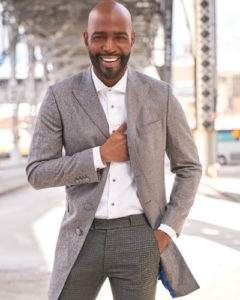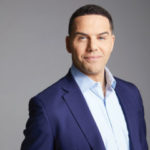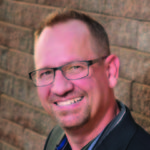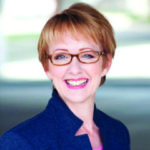
Openly gay, black, a single father, and Christian — “Queer Eye” culture expert Karamo Brown unapologetically brings all parts of himself to everything he does. But the TV personality, producer, psychotherapist, and activist told Convene that he wasn’t always so open.
“Courage to be who you are is a process that you have to work at daily, that you have to practice daily,” Brown said in advance of his appearance on Jan. 7 at PCMA Convening Leaders 2019 in Pittsburgh. “I began practicing in middle school and high school, realizing that hiding parts of my identity … was not giving me the opportunity to shine and to stand out.”
Brown will discuss both his personal and professional experiences in sharing his whole self as part of his “Know Thyself: Using your Uniqueness to Create Success” Ascent Studio session. He gave Convene a taste of what the audience can expect from him in Pittsburgh.
What’s the focus of your session?
I’m very excited to be joining everyone there. The focus is really [going to be] about how to use all parts of your identity to create the success you want in life. Oftentimes, we get into spaces where we dull who we are because we are scared that if people see us holistically and authentically as who we are, they will judge us or that we won’t be accepted. Psychology teaches us that when you hide parts of your identity, it’s harmful and can create emotional, mental distress because of the irrational fear of people’s approval, and you have to get over that in order to achieve all you can in life.
How will you fashion your message for a business events audience specifically, or is there no need to tailor it?
It’s the same. If you want to achieve in your career you need to understand that hiding parts of yourself is not going to help you succeed. You need to bring all parts of your identity to every board meeting, every interview, every creative brainstorm. You need to bring who you are holistically, because that’s where your power is.When you talk about what motivates people to want to interact with you, it’s not about your degree, it’s not about your qualifications. It’s about you and what you bring to the table. Those things are part of it, but you have to bring all parts.
Do you have any advice on what to do if, after you bring your full self to a situation, you get a bad reaction?
Well, I don’t want to give the speech fully away. … But all these things come up. There are voices in your head [saying] it’s okay not to bring yourself fully. It’s the way that you’ve been taught. All of these things are going to be challenged and critically thought about [in the session]. The audience can walk away and understand that they do have the power to create the life they want by showing up holistically.
When did you begin to know yourself?
It’s been an ongoing journey, and I think that’s the key thing that people will also learn. This is not something that happens overnight. … To this day, any time that I feel challenged by that [feeling], I have to work against it by making sure that I don’t hide a part of myself, but understand that it’s a benefit.
Your session description, even though it doesn’t mention diversity and inclusion specifically, seems to tie in to those issues.
Oh, it’s 100 percent tied together. The words “diversity” and “inclusion” aren’t specifically being said, but bringing every bit of your identity to the forefront is the definition of diversity. It’s saying that I have diverse experiences, I am different from you, and it’s okay if I bring all of those pieces of me into each room, so that we can succeed together as business leaders.
PCMA’s Ascent program promotes diversity and inclusion in the business events industry. How does diversity and inclusion lead to social transformation?
It’s through visibility. Once I see someone in a position [of power], it lets me know that I have an ability to do the same — and that’s key. My self-esteem, my mental health won’t believe that I have the power if I don’t see somebody [with power]. It takes a lot of courage to be the first, but once there is one, there will be many more. I think that’s why it’s very important. … It is not okay to have [spaces] that do not include people of different ethnic backgrounds, sexual orientations, gender identities.
You’re filming Season 3 of “Queer Eye” now. What can fans expect?
A lot more! A lot more tears, a lot more laughter.
Learn more about Karamo Brown at karamobrown.com.



